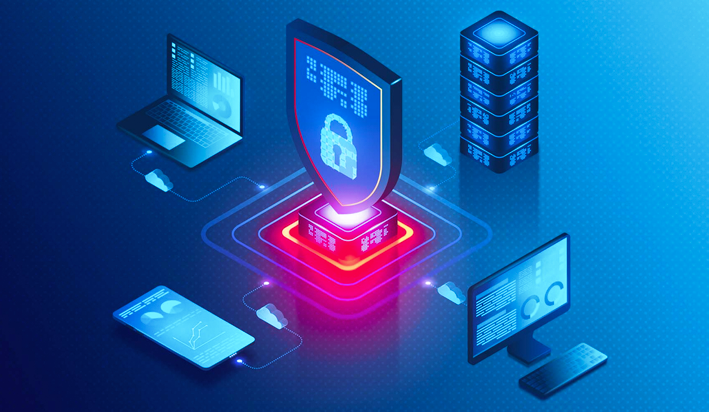Information security has been the top priority for businesses, irrespective of their size. A handful of IT security companies offer products to secure many IT assets from potential cyber-attacks and data breaches. Endpoint Security is one such approach to safeguard devices and defend them from vulnerabilities and attacks. Let’s learn more about endpoint security and why it matters today!
Endpoints are the computing devices that connect to the network and communicate back and forth across the network. Endpoints can be Desktops, Laptops, Workstations, Smartphones & IoT devices. In the radar of cybercriminals, Endpoints are vulnerable targets to execute cyber-attacks. Through these endpoints, they can gain access to the organization’s network and would be able to compromise the complete system. Endpoint security has become more essential as businesses go remote and users/employees connect to internal resources from different devices or endpoints.
There is two most commonly used jargon when it comes to endpoint security. One is “Antivirus”, and another is “EDR”. Let’s dissect these two and understand the difference between antivirus and EDR.
Antivirus
Antivirus is a well-known and widespread endpoint protection program that has been in use for a very long-time. It is inexpensive software that is also relatively simple to configure and use. Endpoint manufacturers usually preload Antivirus applications with their devices. It provides ample protection for non-mission-critical endpoint devices.
The antivirus software identifies, restricts, and isolates hazardous, malicious softwares so they can’t damage your data and legitimate software. The antivirus software can safeguard the endpoints from familiar malware, adware, and spyware programs. These programs are designed to impact the innate behaviour of the system processes.
Legacy antivirus solutions follow a virus signature matching approach to determine threats to the endpoints. This is based on comparing files against a “bad” files database that contains information about known threats. It also involves Heuristic Scanning and Integrity Scanning. NGAV (Next Generation AntiVirus) is the most recent addition to antivirus solutions; Which uses AI/ML techniques to perform behavioural analysis. This helps identify malicious behaviour that is different from natural system behaviour to some extent. Antivirus also has a caveat; it falls short when protecting against advanced threats. It is because of its decentralized functionality that has not changed significantly over time.
Endpoint Detection & Response (EDR)
The Endpoint Detection & Response (EDR) is an advanced program in the endpoint security landscape. As the name suggests, EDR is a proactive suite that automatically detects threats and initiates responses. It is more practical and robust than Antivirus for enterprise-level security. And Threat Intelligence makes EDR the most sophisticated endpoint security solution for organizations.
EDR leverages real-time monitoring of system processes and endpoint data with the rule-based automated response and analysis features. EDR’s continuous monitoring detects and acts on advanced threats such as zero-day vulnerabilities and ransomware that may not be easily identified or defined by standard Antivirus. EDR’s behaviour analysis is more extensive compared to NGAV, and it detects unknown threats based on a behaviour that isn’t normal and separates them from the system without affecting the performance.
EDR’s centralized management maintains a database that has monitoring information of the overall network perimeter and multiple endpoint events. It leverages the Common Vulnerabilities and Exposures (CVE) system, a repository for publicly disclosed computer security flaws. The security analysts and teams use this data for in-depth analysis, investigation, or reporting. “Threat Hunting” practices are made easier with the help of EDR to implement proactive safety measures across the enterprise network. EDR adds more value to security teams by helping them improve the organization’s overall security posture.
Can EDR replace Antivirus as the Next-gen Cyber Security Solution?
Given the functionalities, one might easily conclude that EDR can replace Antivirus. But the truth is EDR is not meant to replace Antivirus; instead, they both work as complementing security tools for each other. Security researchers and analysts recommend deploying advanced EDR solutions along with the Endpoint Protection Platform (EPP) to ensure a highly focused and comprehensive cyber-security proposition. According to Gartner Research; Microsoft, Trend Micro, Crowdstrike & SentinelOne are some of the leading Endpoint Protection Platform providers.
It is quintessential to make the right choice of solutions that meets your security requirements. SRM Tech, an ISO 27001 ISMS Certified MSP, offers well-versed cybersecurity solutions to level up your information security approach. Get in touch with us to know more about securing your organization from advanced cyber threats.






